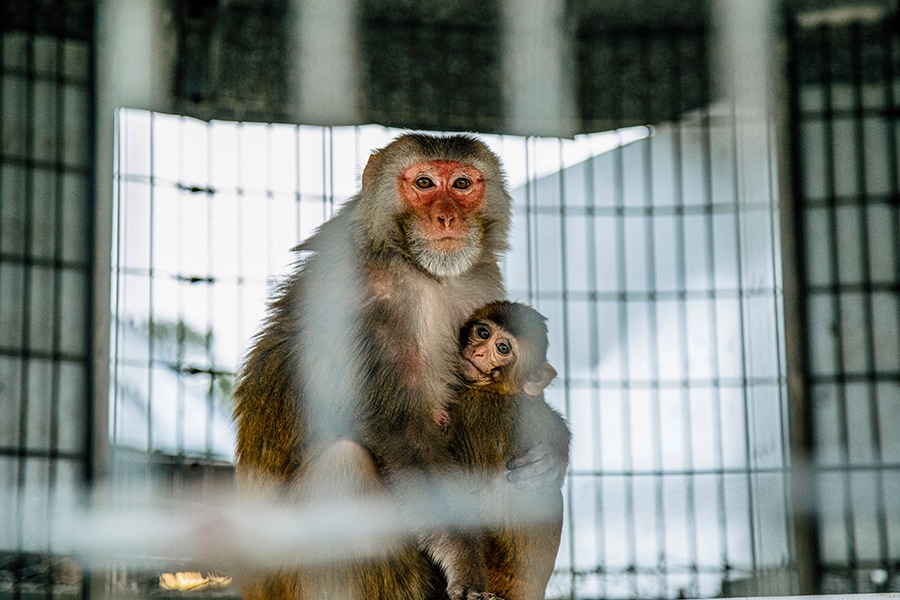
Future vaccines depend on test subjects in short supply: Monkeys
Scientists say monkeys are the ideal specimens for researching coronavirus vaccines before they are tested on humans
 Pink-faced rhesus macaque monkeys at the Tulane University National Primate Research Center in Covington, La., outside New Orleans, on Feb. 12, 2021. The coronavirus pandemic has highlighted the United States’ dependence on China for research animals, reviving calls for a "strategic monkey reserve." Image: Bryan Tarnowski/The New York Times
Pink-faced rhesus macaque monkeys at the Tulane University National Primate Research Center in Covington, La., outside New Orleans, on Feb. 12, 2021. The coronavirus pandemic has highlighted the United States’ dependence on China for research animals, reviving calls for a "strategic monkey reserve." Image: Bryan Tarnowski/The New York Times
Mark Lewis was desperate to find monkeys. Millions of human lives, all over the world, were at stake.
Lewis, the chief executive of Bioqual, was responsible for providing lab monkeys to pharmaceutical companies like Moderna and Johnson & Johnson, which needed the animals to develop their COVID-19 vaccines. But as the coronavirus swept across the United States last year, there were few of the specially bred monkeys to be found anywhere in the world.
Unable to furnish scientists with monkeys, which can cost more than $10,000 each, about a dozen companies were left scrambling for research animals at the height of the pandemic.
“We lost work because we couldn’t supply the animals in the time frame,” Lewis said.
The world needs monkeys, whose DNA closely resembles that of humans, to develop COVID-19 vaccines. But a global shortage, resulting from the unexpected demand caused by the pandemic, has been exacerbated by a recent ban on the sale of wildlife from China, the leading supplier of the lab animals.
©2019 New York Times News Service




